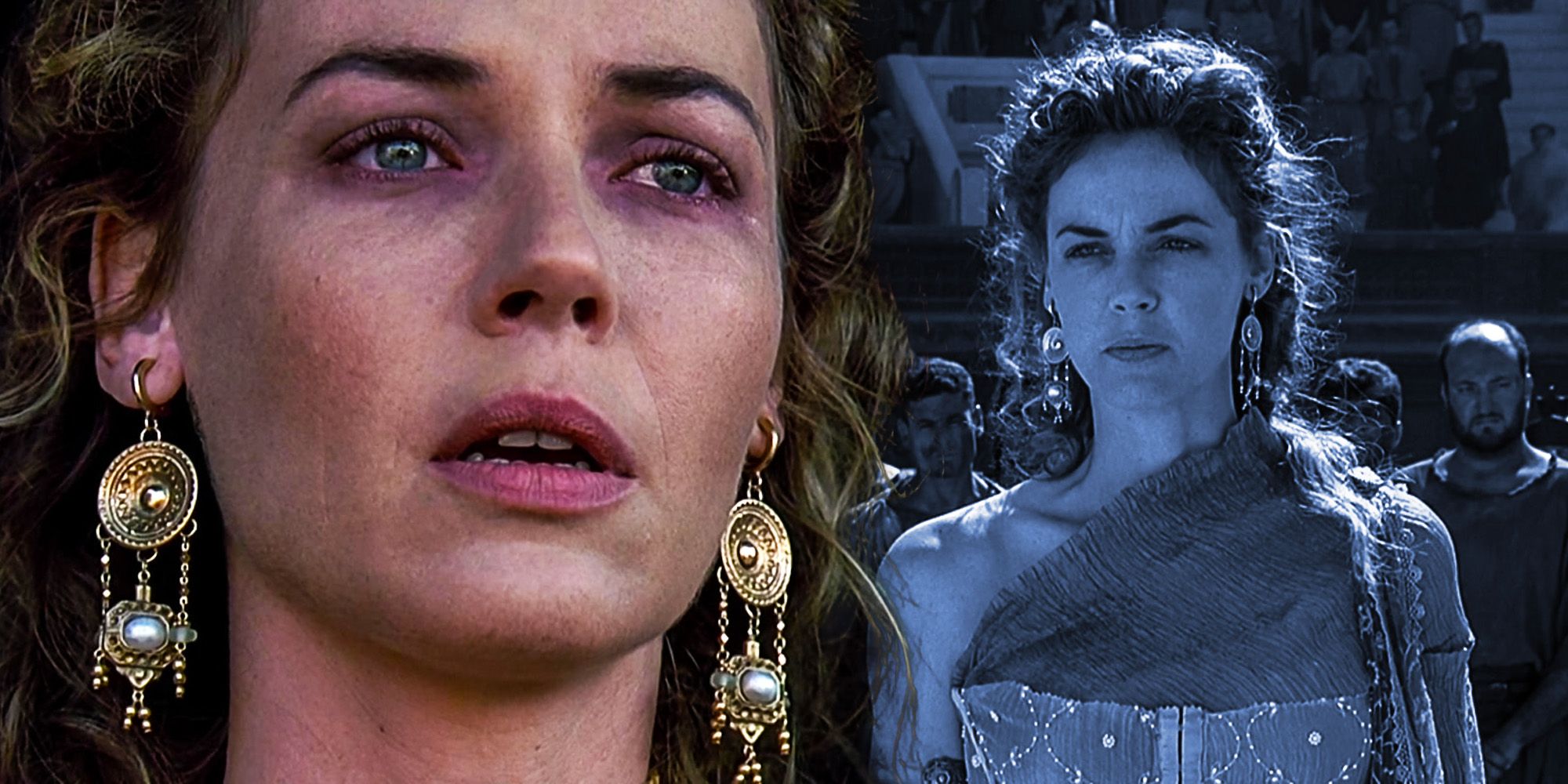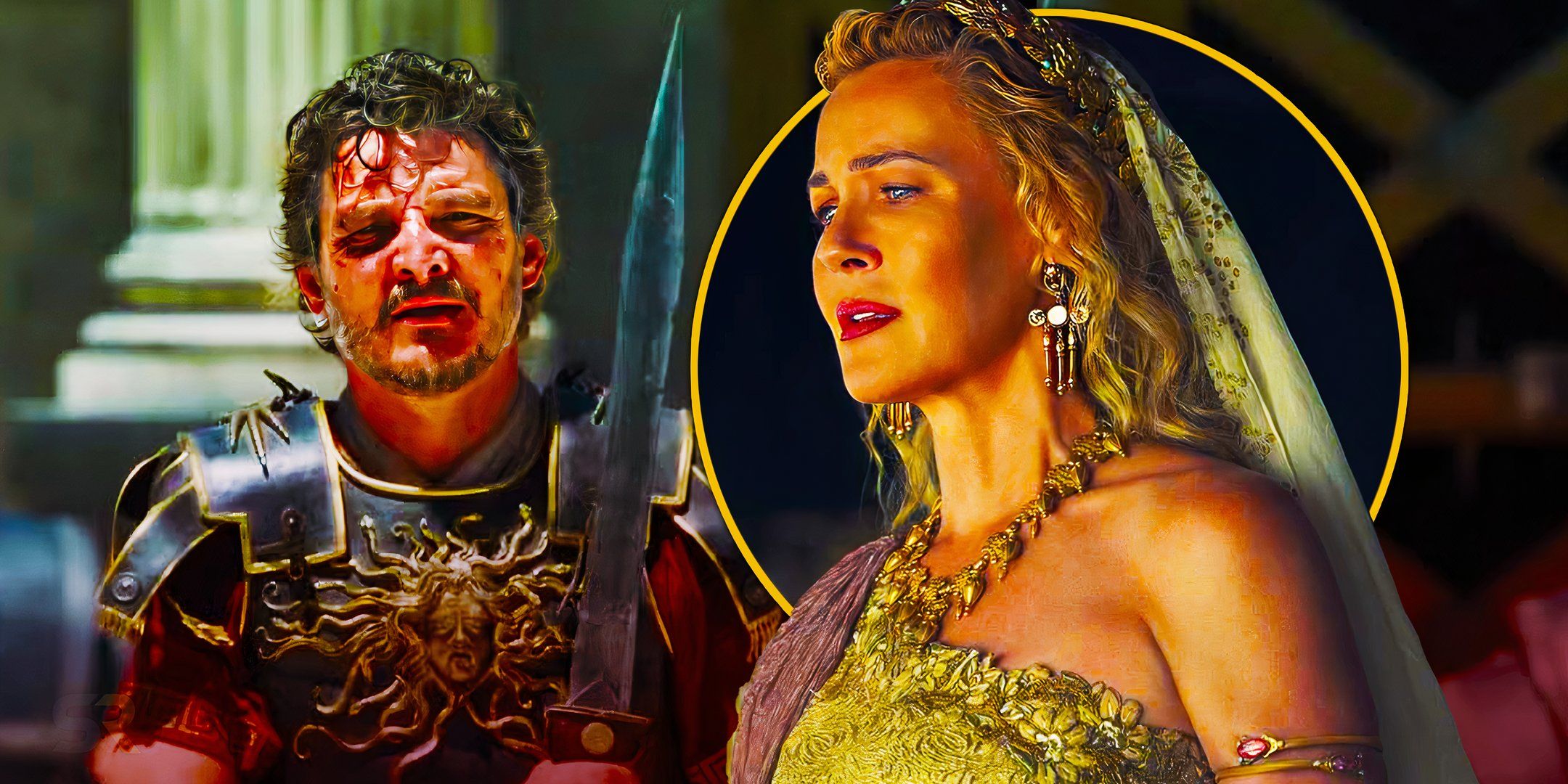Discovering Lucilla: Who Played This Iconic Character In Gladiator?
The epic tale of "Gladiator" has truly captured the hearts of many movie watchers for years, you know, ever since it first arrived on the big screen. It's a story that takes us back to ancient Rome, full of big battles, tricky political moves, and deep personal struggles. Among the many memorable figures in this sweeping film, one character stands out for her grace, strength, and quiet sadness: Lucilla. Her presence is a really central part of the whole story, connecting the hero, Maximus, with the dark world of the emperor, Commodus.
So, it's quite natural for people to wonder about the person who brought such a complex and powerful woman to life. Who was the actress that stepped into Lucilla's sandals, embodying her difficult choices and her brave spirit? This role needed someone who could show both the fragility of a woman caught in a dangerous situation and the fierce will of a survivor trying to protect her family. It was, in a way, a part that demanded a lot from the person taking it on.
Today, we're going to explore the talent behind this unforgettable portrayal. We'll learn about the woman who played Lucilla, her background, and how she managed to make this character feel so real and so important to the enduring legacy of "Gladiator." It's actually a fascinating look at how a great actor can shape a story.
Table of Contents
- The Actress Who Played Lucilla
- Lucilla's Enduring Legacy in Gladiator
- The Cultural Impact of Gladiator
- Frequently Asked Questions About Lucilla in Gladiator
The Actress Who Played Lucilla
The role of Lucilla in Ridley Scott's "Gladiator" was brought to the screen by the talented Danish performer, Connie Nielsen. Her work in this film really left a big impression on audiences around the globe, cementing her place in the minds of many as the Roman noblewoman who walked a very fine line between loyalty and survival. It's quite a feat, honestly, to make such a character so memorable.
Connie Nielsen, born in Frederikshavn, Denmark, took on this significant part with a deep sense of understanding for the character's troubles. Before "Gladiator," she had already made a name for herself in various international productions, showing a versatility that would serve her well in this demanding role. She had, in a way, been building up to a performance of this magnitude.
A Glimpse into Her Life and Career
Connie Nielsen's path to becoming an internationally recognized performer involved a good deal of hard work and a commitment to her craft. She started her acting studies in places like Rome, Milan, and New York, gaining a wide range of experiences that shaped her unique approach. This background, you know, helped her truly embody diverse characters.
Her career before "Gladiator" included roles in films like "The Devil's Advocate" and "Mission to Mars," where she worked alongside some big names in the industry. These experiences allowed her to hone her skills and prepare for the complex emotional layers that Lucilla would require. She was, in some respects, always preparing for that next big challenge.
After "Gladiator," Connie Nielsen continued to take on varied parts, showing her range in both independent and major studio films. She appeared in "One Hour Photo," "The Hunted," and more recently gained new fans as Queen Hippolyta in the DC Extended Universe films, including "Wonder Woman." Her career, it seems, has been one of consistent engagement with interesting projects.
Here's a quick look at some personal details about Connie Nielsen:
| Detail | Information |
|---|---|
| Full Name | Connie Inge-Lise Nielsen |
| Date of Birth | July 3, 1965 |
| Place of Birth | Frederikshavn, Denmark |
| Nationality | Danish |
| Notable Works (Selected) | Gladiator, The Devil's Advocate, One Hour Photo, The Hunted, Wonder Woman, Justice League |
| Languages Spoken | Danish, English, French, German, Italian, Swedish, Norwegian, some Spanish |
Bringing Lucilla to Life: A Powerful Portrayal
Connie Nielsen's portrayal of Lucilla is, quite simply, a masterclass in subtlety and strength. She had to play a character who was a daughter, a mother, a sister, and a former lover, all while living under the watchful and often terrifying eye of her brother, the Emperor Commodus. This required a performer who could show deep internal conflict without always saying much. She really played the role with a lot of quiet intensity.
The way she carried herself, the expressions on her face, and the way she interacted with other characters all spoke volumes about Lucilla's predicament. Nielsen, it seems, understood that Lucilla was constantly balancing her own safety, her son's future, and her lingering feelings for Maximus. She truly engaged in the activity of bringing this woman's struggles to the screen with great care.
Her performance also captured the tragic nature of Lucilla's existence. She was a woman of high standing, yet she was, in a way, a prisoner of her circumstances. Nielsen's ability to convey both Lucilla's regal bearing and her deep vulnerability made the character incredibly relatable and, frankly, quite moving. She really worked hard to make that connection with the audience.
The chemistry she shared with Russell Crowe, who played Maximus, was also a vital part of the film's emotional core. Their shared history and unspoken understanding added layers of meaning to their scenes together. Nielsen's ability to play her part so convincingly helped to ground the epic story in very human feelings, making the grand narrative feel personal.
Lucilla's Enduring Legacy in Gladiator
Lucilla is far more than just a supporting character in "Gladiator"; she is, in fact, a pivotal figure whose actions and emotions drive much of the plot. Her presence provides a constant reminder of the human cost of power and corruption within the Roman elite. Her story is, arguably, as compelling as Maximus's own journey.
A Woman of Strength and Sorrow
Lucilla's life is marked by profound challenges. As the daughter of Emperor Marcus Aurelius and the sister of Commodus, she is entangled in the political machinations of the Roman Empire. Her intelligence and strategic thinking are often hidden beneath a veneer of courtly grace, but they are very much there, guiding her choices. She, in a way, had to play a very careful game.
Her relationship with Maximus is a thread of hope and past happiness that is tragically cut short. Her love for her son, Lucius, is a powerful motivator, driving her to make difficult decisions to ensure his safety from the unpredictable and cruel Commodus. This maternal bond, you know, adds a deep emotional weight to her character.
Lucilla also represents the moral compass that Commodus lacks. While he descends into tyranny, she attempts to uphold some semblance of honor and justice, even if it means putting herself at great risk. Her sorrow is palpable, stemming from the loss of her father, the corruption of her brother, and the tragic fate of the man she loved. She truly strived to do what was right in a very wrong world.
Her inner conflict is a key part of what makes her so fascinating. She yearns for freedom and a return to the values of her father, but she is also bound by duty and the harsh realities of her position. It's a very human struggle, honestly, that many can relate to, even without the Roman setting.
Why Her Portrayal Still Resonates
The reason Lucilla's character, as played by Connie Nielsen, continues to resonate with audiences years after "Gladiator" first premiered is multifaceted. For one thing, she embodies timeless themes that speak to the human condition. Her struggle for survival, her quiet defiance, and her deep love for her family are feelings that cross all boundaries. It's almost as if her story could happen anywhere.
Her intelligence and resilience make her a compelling figure, someone who, despite her vulnerability, possesses an inner strength that rivals even the mightiest warriors. She uses her wit and influence, rather than a sword, to try and change her fate and the fate of Rome. This makes her a very different kind of hero in the story.
Moreover, the nuanced way Nielsen brought Lucilla to life allowed viewers to connect with her on a deeper level. You could feel her pain, her fear, and her quiet determination without her having to spell it all out. This kind of performance is what makes a character truly unforgettable, you know, making her feel like a real person.
Her character also highlights the often-overlooked strength of women in historical narratives, showing that influence and power can come in many forms, not just through physical might. Lucilla's quiet battles behind the scenes are just as important as the gladiatorial contests in the arena, in some respects. She truly played her cards right in many tense situations.
The Cultural Impact of Gladiator
"Gladiator" wasn't just a movie; it was, in a way, a cultural phenomenon that revitalized the historical epic genre for a new generation. Released in 2000, it swept the Academy Awards, including Best Picture, and earned widespread critical acclaim for its grand scale, compelling story, and strong performances. It really made a big splash, as a matter of fact.
The film's success proved that audiences were still hungry for stories of ancient heroes and dramatic conflicts. It inspired a wave of similar historical dramas and, perhaps more importantly, solidified the careers of its main performers, including Russell Crowe, Joaquin Phoenix, and, of course, Connie Nielsen. It was, quite honestly, a very important moment for cinema.
The enduring appeal of "Gladiator" lies in its timeless narrative about revenge, honor, and the fight against tyranny. The characters, like Lucilla, are so well-crafted and so deeply felt that they continue to resonate with viewers today. This is why, even now, people are still curious about the people who brought these stories to life. You know, it really sticks with you.
As of late 2023, the film remains a beloved classic, often cited as one of the best historical films ever made. Its influence can still be seen in popular culture, from its memorable lines to its iconic imagery. It truly played a big part in shaping how we see historical dramas, and it's still very much talked about.
Frequently Asked Questions About Lucilla in Gladiator
People often have questions about the characters and the historical accuracy of "Gladiator." Here are a few common ones related to Lucilla:
Was Lucilla a real person in history?
Yes, Lucilla was a real historical figure. She was indeed the daughter of Emperor Marcus Aurelius and the sister of Commodus. However, the events and her specific role in the film are largely fictionalized for dramatic effect. The movie takes inspiration from history but, you know, it tells its own story.
What happened to Lucilla at the end of Gladiator?
In the film's ending, Lucilla's fate is left somewhat open, but it's implied that she faces severe consequences for her part in the plot against Commodus. After Commodus's death, she is seen among the survivors, but her future in the treacherous Roman court is uncertain. It's a bit of a cliffhanger, in a way.
How old was Lucilla's son in Gladiator?
Lucilla's son in "Gladiator" is named Lucius Verus. While his exact age isn't stated, he appears to be a young boy, perhaps around 8-10 years old. His innocence and vulnerability are a key part of Lucilla's motivation throughout the film. He's a very important little character, you know, for her story.
For more interesting facts about the making of this epic film, learn more about Gladiator's behind-the-scenes stories on our site. And if you're curious about other memorable roles played by the cast, you might also want to check out this page about the other actors from Gladiator.

Gladiator: What Happened To Lucilla In Real Life

Acacius & Lucilla's Plan In Gladiator 2 Explained & What Went Wrong

Gladiator 2 Nearly Introduced A Wild Lucilla Twist Involving The Emperors